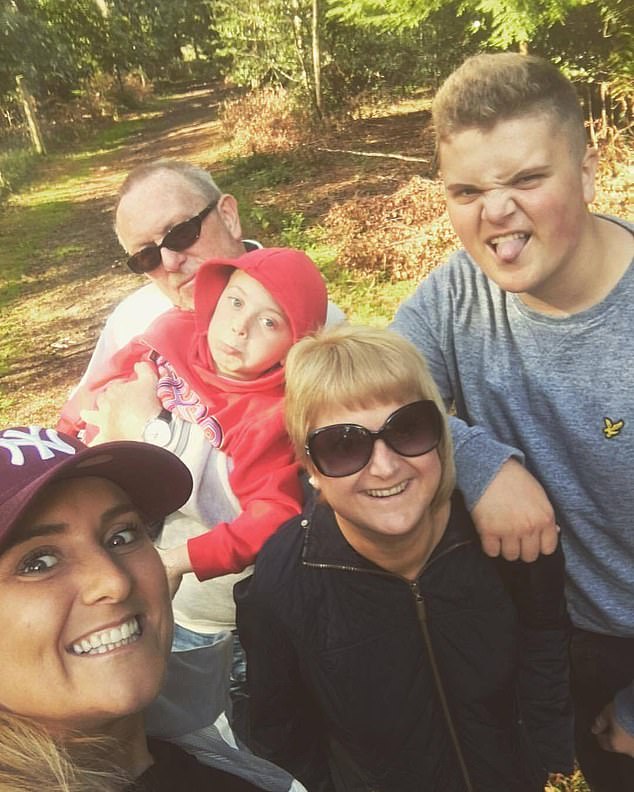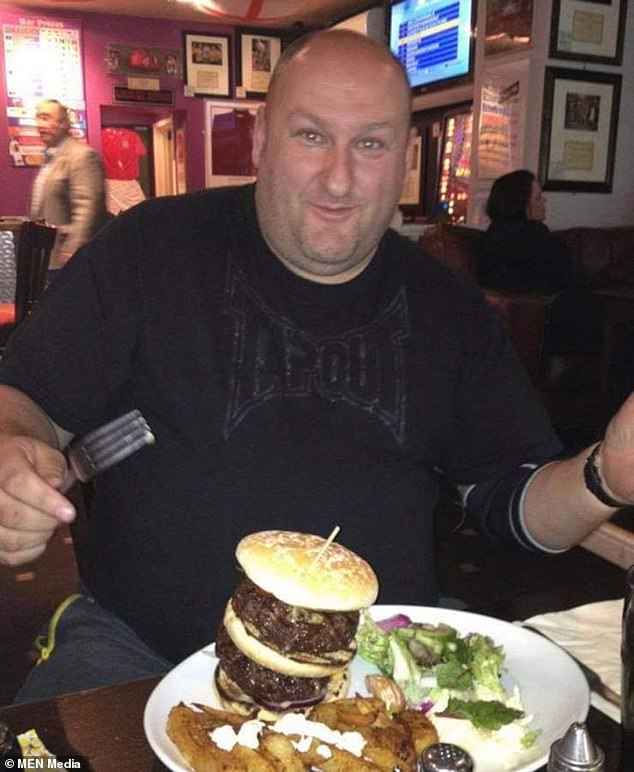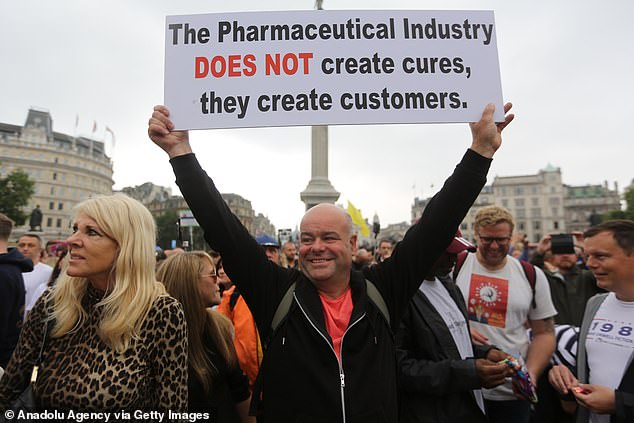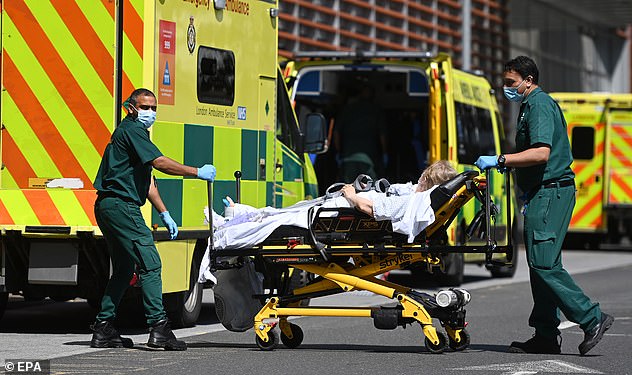Doom-laden press briefings. Warnings that millions could soon be self-isolating. Grim predictions of fresh restrictions. It’s starting to feel a little too… familiar. And last week came another sign that Covid hasn’t finished with us just yet.
On Tuesday, the Government announced 96 coronavirus deaths in a single day – up 92 per cent since the week previously, and the highest figure since March.
But with about 70 per cent of Britons – including almost all of the most vulnerable – protected by two doses of the vaccine, is there now real cause for concern?
Perhaps most worrying was the latest Public Health England (PHE) data showing more vaccinated people, on average, are dying from the disease compared to those who are unjabbed. Is something going wrong? How much at risk are we, despite having had our jabs?
In an attempt to find an answer, this newspaper has collected accounts from emergency medics working tirelessly up and down the country as well as bereaved loved ones.
Among them is 35-year-old Carla Hodges from Hertfordshire, whose stepfather, Leslie Lawrenson, died aged 58 in early July having contracted the virus weeks earlier. Leslie, a solicitor, had no underlying health conditions – but didn’t have his vaccine, because he believed he ‘didn’t need it’. ‘
He was convinced because he was healthy without any problems, it wouldn’t be too bad for him,’ says Carla, an account manager. ‘He didn’t realise how sick he was. One minute he said he felt like he had bad flu, but was sitting up in bed and working, the next minute he’d passed away in his bed.’

Carla Hodges, pictured left, with her children and her mother Amanda, centre and her stepfather Leslie Lawrenson, pictured rear, urged the pair to get vaccinated. Mr Lawrenson, who was a solicitor, died at home in Hampshire having contracted Covid-19 after refusing to get vaccinated. On the day he died, his partner was taken to hospital suffering from pneumonia caused by Coronavirus. Luckily she was released from hospital a week later, regretting that she and Mr Lawrenson had ignored warnings about the dangers posed by the virus

Glenn Barrett, 51, from Grimsby told the nurse who was about to intubate him inside the ICU unit of Princess of Wales Hospital that he wished he had taken up the option of having a vaccination. Three weeks after getting infected, most likely while watching England versus Croatia at a local social club, Mr Barrett was dead
On the same day Leslie died, Carla’s mother Amanda, 56, who has diabetes and was also suffering with Covid, was admitted to hospital with pneumonia – she was also unvaccinated. ‘Les had convinced her she’d be fine without it and her chances of dying were really small,’ says Carla. ‘I’d said “Mum, you really should get the vaccine” time and time again, but she didn’t listen. She told me her doctor said she didn’t have to get it, which I knew was a lie.’
Thankfully, Amanda was discharged a week later. ‘Now she regrets not having the vaccine and is desperate to get it as soon as she can,’ says Carla. ‘I just want everyone not to take their health for granted. This virus is still out there. And it’s still killing people.’
Then there is 51-year-old Glenn Barrett, who died earlier this month at the Princess of Wales Hospital in Grimsby, having contracted the virus three weeks earlier, most likely while watching the England vs Croatia Euro 2020 game at his social club. The volunteer carer rejected the offer of a jab.
His cousin, Ken Meech, said: ‘Glenn had his reasons for not having the jabs, but he had no spleen and no immune system to help fight any infections.’
Glenn, like many who get very sick after refusing the jab, was ultimately full of regret. Relatives said his final words to nurses before going into an induced coma and being attached to a ventilator were: ‘I wish I’d had my jab.’
Despite these warning stories, it is also true that many of those who have died recently of Covid have been at least partially vaccinated. Last week, Chief Scientific Officer Sir Patrick Vallance stated that 40 per cent of those currently in hospital with Covid had been double-jabbed.
According to the most recent PHE figures, the majority of those infected with the Delta variant who died between February and June had received at least one jab.
Experts say this is to be expected. Roughly five per cent of people who have both doses of the vaccine will not respond to it, and a further five per cent may produce a weak response due to underlying conditions that compromise their immune system. Transplant patients taking high doses of medications that suppress their body’s infection-fighting mechanisms and blood cancer patients make up the majority of this group. Together, this adds up to roughly three million people potentially extremely vulnerable to the virus.
And age is still a risk factor. While the vaccine reduces the risk of death from Covid 20-fold, the risk of death for a 70-year-old is 32 times that of a 35-year-old.
John Edmunds, Professor at the Centre for the Mathematical Modelling of Infectious Diseases, London School of Hygiene & Tropical Medicine, explains: ‘As we vaccinate more people, we would expect to see a greater proportion of deaths occurring in vaccinated people.
‘If we had vaccinated everyone then we would expect to see fewer deaths overall, but all of them would be in vaccinated people.’
It is also possible that people who, on paper, are double-vaccinated may have become infected soon after their second dose – meaning it hadn’t had time to work properly.
Dr Katherine Henderson, London-based emergency medicine consultant and President of the Royal College of Emergency Medicine, says: ‘We have a small number of older, frail patients who have been jabbed but have conditions that affect the immune system, so they don’t respond as well, and a few in their 70s and 80s who still haven’t had their vaccine, for whatever reason. But generally speaking, the country-wide stats don’t give a true representation of what we’re seeing in individual hospitals. It’s a totally different picture.’
If you speak to doctors on the ground, they say the most seriously ill they see are unvaccinated.
Doctors say this cohort has led to the emergence of a surprising, new patient group. Dr Henderson says: ‘In the last waves, we saw almost exactly the same patient over and over again – elderly people with type 2 diabetes, high blood pressure and maybe obesity. It was almost as if you could diagnose Covid illness just by looking at them. But now we have the vaccine, it’s a totally different set of people – they’re in their 40s, or younger, previously well, and unvaccinated.’
The latest Government data shows uptake of at least one dose of the jab is more than 90 per cent in all age groups above 60. But in the 45-to-49-year-old age group, it drops to 80 per cent. In 25-to-29-year-olds, it’s just shy of 60 per cent. One London-based medic told this newspaper the average age of Covid patients on their intensive-care wards was just 42.
Another medic, working in the North of England, says one of his most seriously ill patients, who is currently in intensive care with the bleakest prospects, was just 26 with no underlying health conditions. ‘The woman didn’t want to have the vaccine, and we weren’t entirely sure why.’
A respiratory consultant working on a Covid ward reveals some patients had said they’d wanted to achieve ‘natural immunity’ by contracting the virus, as opposed to having the jab to prevent it.
Others, he says, expressed concerns about the lack of long-term safety data, despite the fact all available vaccines have been subject to greater scrutiny than many newly available medications. Not to mention the fact that 3.7 billion doses have been given worldwide, with relatively tiny numbers experiencing complications.
‘Most of these people have the decency to look sheepish,’ says one respiratory consultant. ‘Or to describe themselves as “one of those idiots”.’
Dr Ami Jones, an intensive-care consultant says, sadly, by the time most patients realise they made the wrong decision, ‘it’s too late’.

Medics have reported having to deal with people who believe that Covid-19 is a hoax or that vaccines are not safe – even denying that their love ones may have died of Covid-19, pictured here anti-lockdown and anti-vaccine protesters at Trafalgar Square in London yesterday
But not all, it seems. ‘I’ve had some very hard-line anti-vaxxers and Covid-deniers,’ says Dr Jones.
‘I’ve heard of family members who refuse to believe their loved one was dying of Covid. They thought doctors were colluding with the Government and making it up. Some are convinced their loved ones are actually suffering [non-Covid-related] pneumonia.’
Meanwhile, one South London-based emergency medicine consultant says a patient requested that his death certificate, if the worst should happen, should not mention the word Covid.
‘It’s totally baffling,’ he says. ‘Some say we’re getting confused with flu. That’s what they’ve seen someone with zero qualifications on social media saying.
‘Families have said to me they don’t want to adhere to visiting restrictions because they don’t believe the virus is real, despite the fact their loved one is desperately sick in front of them.
‘They think something else is going on. I’m not quite sure what.
‘You have to keep it professional. It’s not my job to correct people. I calmly explain that this is, in fact, a very real disease and we have seen dozens of people with it, and it makes them very sick.’
Interestingly, doctors in the US – where half of the country’s population have been vaccinated – are reporting similar experiences to that of British medics.
Sam Ghali, an emergency medicine doctor working in Jacksonville, Florida, says: ‘Everyone needs to know that more than 99 per cent of critically ill Covid patients we are seeing are NOT vaccinated.’
And in the south-eastern state of Alabama, where only a third of the population has taken up the offer of a vaccine, doctors say the majority of those dying are unvaccinated.

The Government’s coronavirus data tracks the number of patients in mechanical ventilation beds: this has increased by roughly 200 over the past week, pictured anti-vaccine and anti-lockdown protesters at a demonstration in Trafalgar Square, London yesterday
Dr Brytney Cobia, an A&E doctor from Grandview Medical Center in Birmingham, Alabama, says: ‘One of the last things [unvaccinated patients] do before they’re intubated is beg me for the vaccine. I hold their hand and tell them that I’m sorry, but it’s too late.’
Doctors say few of the unvaccinated victims suffer the underlying conditions known to predispose patients to serious Covid disease – heart conditions and lung disease. The overwhelming majority of these patients have taken the vaccine. There may be one risk factor, however, that does predispose younger, otherwise healthy individuals to severe Covid.
‘Many of the sickest patients we see in ITU have significant obesity,’ says Dr Katherine Henderson.
‘The other day we admitted a very sick patient in his 20s who had no health conditions apart from significant underlying obesity.
‘In these patients we do tend to see the same kind of severe illness we saw in the first wave – respiratory problems, low blood oxygen levels and alarming lung damage on X-rays.’
One Wales-based intensive-care medic says it is ‘too early’ for her small hospital to see a wave of deaths but she does have a number of ‘very poorly unvaccinated patients’ who are not likely to make it. ‘There’s about seven of them, and the vast majority are quite significantly overweight,’ she says. ‘We have one strapping chap in his 30s who is on the pre-diabetic borderline. But he’s only just been diagnosed and controlling it well so far with diet. You wouldn’t even count him as having diabetes and to look at him, you’d never think so. It’s just bad luck.’
Three of the six medics we spoke to said roughly half of their small number of intensive-care patients were unvaccinated, but otherwise totally healthy. ‘My sickest patient right now is a 40-year-old woman who goes to the gym twice a week, never smoked, is slim and has no medical history,’ says one intensive care doctor working in the West Midlands. ‘She didn’t get the vaccine because she said she was too busy. I’m not sure she’ll survive.’
A case in point could be found in 33-year-old Brendon Jones, who died of Covid on July 13 after a short illness. He suffered no underlying conditions, according to his mother Hayley. Brendon suffered agoraphobia – a fear of being in spaces you can’t escape from – and struggled to organise transport to get the jab.
His mother said he did not normally get ill ‘but with this, he became poorly so rapidly. It started with vomiting and diarrhoea and then he had chest pains and his breathing went downhill.’
Within a few days Brendon was drifting in and out of consciousness and his mother called an ambulance. He was admitted to intensive care and died a few days later.
Widespread beliefs that the young, healthy and fit are safe, and perhaps don’t need a vaccine, is ‘causing real damage’, says Dr Charlotte Summers, Honorary Consultant in Intensive Care Medicine at Cambridge University Hospitals NHS Foundation Trust. People don’t realise that when an individual who dies is reported as having an underlying condition, their health problem often has nothing to do with Covid, or their death.
‘For instance, if a patient had depression or very, very mild asthma, it would be put down as an underlying condition.
‘There are many unvaccinated, otherwise healthy people in intensive care right now with Covid.’
Dr Ron Daniels, an intensive-care doctor and CEO of the Sepsis Trust, offers one potential explanation: ‘We know that some carry genetic combinations that make them less able to fight infections. They can be perfectly healthy, but their genes fail them. We see this with sepsis [a potential fatal immune system reaction to infection] and it’s likely to also be true for Covid.’
But while the numbers of patients being admitted to intensive-care units may be creeping up, thanks to the vaccine far more patients are surviving it, compared to waves one and two.
The Government’s coronavirus data tracks the number of patients in mechanical ventilation beds: this has increased by roughly 200 over the past week.

Dr David Oliver, a consultant in geriatrics and internal medicine in the Thames Valley, says: ‘I think we are all concerned about rising rates of Covid in the community, but are not yet seeing it translate into the same very rapid rise in hospital admissions we saw in December and January – although we are concerned it might’
But Dr Daniels says: ‘In the first two waves, nearly all these patients would be on ventilators, with very bleak prognoses. But now, many patients in these beds are on non-invasive oxygen treatments, such as CPAP [continuous positive airway pressure] masks.
‘And these patients usually do far better. Overall, it’s almost certain that patients are spending far less time on ITU thanks to vaccinations and a host of treatments we now have that we didn’t previously.’
Countries with populations that remain largely unvaccinated demonstrate just how different our third wave could be – had it not been for the UK’s astonishingly successful programme.
The current situation in Indonesia, where just five per cent of adults are jabbed, is reminiscent of those in the worst-hit parts of northern Italy in March 2020.
Deaths are doubling monthly, and now stand at more than 73,000, which is thought to be a gross underestimation due to a lack of reporting. In Brazil, where just a third are vaccinated, about 2,000 are dying daily.
Dr David Oliver, a consultant in geriatrics and internal medicine in the Thames Valley, says: ‘I think we are all concerned about rising rates of Covid in the community, but are not yet seeing it translate into the same very rapid rise in hospital admissions we saw in December and January – although we are concerned it might.
‘Only this time we are also dealing with a major backlog of cancelled and postponed waiting list operations – and a workforce that is tired and demoralised.’
Source link : https://www.dailymail.co.uk/health/article-9821291/Covid-19s-new-victims-Doctors-warn-jabbed-people-make-bulk-fatalities.html











